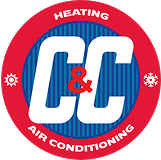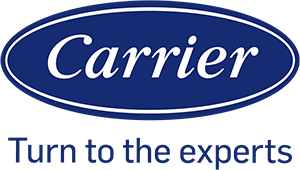Your heating and cooling system doesn’t just affect your home’s temperature. HVAC also has a major impact on the humidity level inside your home. This can result in your home feeling overly dry during the winter and incredibly humid during the summer. With that in mind, let’s look more closely at the effects that your HVAC system has on indoor humidity and how to overcome humidity issues.
How Your Heating System Affects Indoor Humidity
Your heating system has a huge impact on indoor humidity, and this is especially true if you have a gas furnace. Winter air already tends to be much drier, and your heating system can exacerbate this problem. When your heating system runs, it causes most of the moisture in the air to evaporate. This is why the air inside your home often feels extremely dry and staticky.
The Impact of AC on Indoor Humidity
Your air conditioning also has an effect on indoor humidity. The evaporator coil inside the building absorbs heat, and this is how ACs help to lower temperature. This process works by using cold refrigerant liquid. As hot air is drawn over the evaporator coil, the heat energy is transferred from the air into the refrigerant.
The difference in temperature between the cold refrigerant and the hot air causes moisture in the air to condense on the evaporator coil. To understand how this works, all you need to do is think about how water vapor condenses on a cold glass of water during hot weather.
This process also causes the AC system to also lower the humidity level inside the building as it is constantly drawing moisture out of the air whenever it is running. The water that forms on the evaporator coil drips down into the condensate drain system so that it can be drained out of the house.
In theory, as long as your AC is working correctly, it should be sufficient on its own to prevent the humidity level from rising too high. However, this is not always the case. When the indoor humidity level is higher, it makes it much more difficult for the AC to effectively cool. This means that your AC will need to run more frequently and for longer at a time in humid conditions. As a result, your energy bills will be higher and your system may need more frequent repairs or fail sooner.
High indoor humidity can also potentially lead to mold growing inside your home, and this can impact indoor air quality. For all of these reasons, it is important that you take additional steps if your AC isn’t effectively managing your home’s humidity.
How a Variable-Speed AC Can Help Manage Indoor Humidity
If you’re considering replacing or upgrading your air conditioner, you may want to consider a variable-speed AC unit. Instead of running for shorter periods of time at full speed, variable-speed ACs can reduce the speed of the compressor motor. This greatly reduces the amount of energy the system uses when running. It can also make it easier to manage your home’s temperature and humidity and provide an increase in overall indoor comfort.
Since the unit is operating at a lower speed, it will also run much longer before shutting off. This can help to prevent temperature fluctuations that happen when your AC needs to constantly turn on and off. The longer the system runs, the more humidity it can also remove from the air. This is why variable-speed ACs are so much better at managing indoor humidity than single-speed units. While they are more expensive, they are still more than worth the additional costs due to the numerous benefits they can provide.
Using an Energy Recovery Ventilator to Control Humidity
Installing an energy recovery ventilator (ERV) enables you to more effectively control your home’s humidity level all year long. The primary purpose of an ERV is to supply the building with fresh air and vent the stale, polluted air back outside.
Most new homes are extremely well-sealed, which prevents any air from entering or escaping. This has great benefits in terms of energy efficiency. However, it can have a negative impact on indoor air quality and also cause problems with high indoor humidity. If the building can’t breathe, all of the stale air and humidity get trapped inside. This typically isn’t an issue with older homes as they tend to have lots of small air leaks.
ERVs work to supply fresh air to prevent issues with indoor air pollution. They also have a direct impact on indoor humidity as well as heating and cooling costs.
ERVs use one fan to draw clean air in and a second fan to vent stale air out. In between these two air streams is a heat exchanger. This works to transfer heat energy between the air streams. It also absorbs humidity from one stream and transfers it to the other.
In the summer, the cooler outgoing air is used to cool the heat exchanger. It then transfers the heat energy to cool the hot air coming in from outside. At the same time, the system absorbs moisture from the incoming air and expels it outside to prevent the indoor humidity level from rising.
In the winter, moisture is absorbed from the outgoing air and used to raise the humidity level of the incoming air. Heat energy is also transferred from the outgoing air to warm the fresh air as it comes into the house.
Whole-Home Humidifiers and Dehumidifiers
Another option to manage your home’s humidity level is to install a whole-home humidifier or dehumidifier. Whole-home humidifiers work by heating water until it evaporates. This creates water vapor that is then circulated throughout the house whenever your HVAC system runs. If your house is extremely dry during the winter, a whole-home humidifier is definitely the best option for increasing indoor humidity.
Whole-home dehumidifiers also work in tandem with your air conditioning to reduce indoor humidity. These units absorb moisture from the air in the same way as your AC system does. When the AC shuts off, the dehumidifier will automatically kick on to continue removing moisture from the air until your AC turns back on. If you have issues with mold or your house constantly feels muggy, a whole-home dehumidifier is an easy and cost-effective solution to prevent these problems.
Macomb County Heating and Cooling Experts
If you frequently experience problems with high or low indoor humidity, the team at C & C Heating and Air Conditioning offers numerous solutions that can help you overcome these issues. We install energy recovery ventilators, humidifiers, and a range of other indoor air quality equipment.
Our HVAC technicians can also inspect, repair, and maintain your AC system to ensure it is functioning properly and can more effectively manage your home’s humidity level. We also specialize in installing heating and AC units from Trane, Lennox, and Carrier. If you’re looking to upgrade your AC to a high-efficiency, variable-speed unit, we carry a range of AC models that are sure to fit your needs. To learn more about the ways you can manage your home’s humidity, give us a call today.





